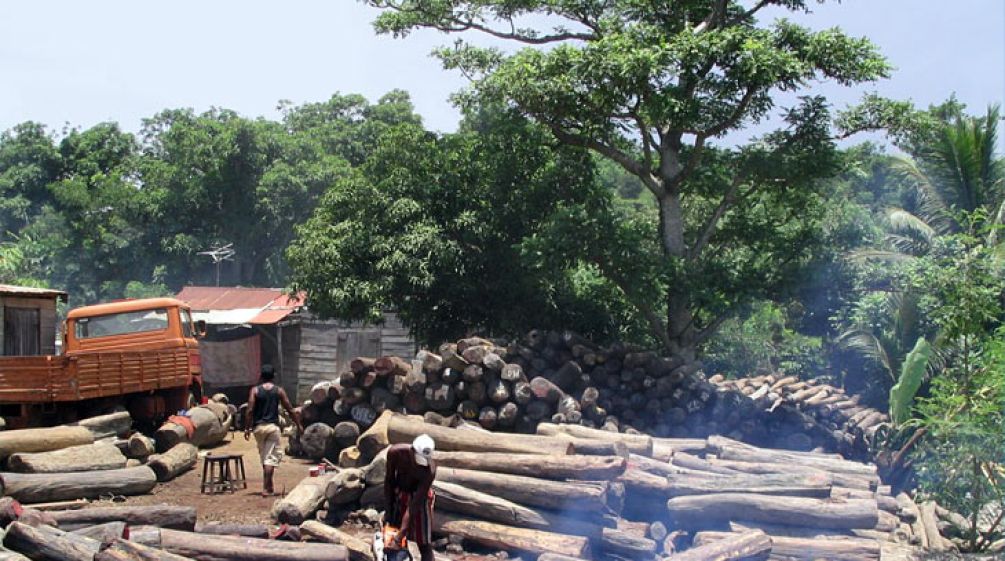Success: Madagascar and Panama restrict trade in ebony and rosewood
 Illegal loggers even loot the national parks in Madagascar
Illegal loggers even loot the national parks in Madagascar
Sep 30, 2011
The Governments of Madagascar and Panama requested the inclusion of 91 species of tropical woods in the Convention on International Trade in Endangered Species of Wild Fauna and Flora (CITES). To date, 175 states have become parties to this international treaty that prohibits or restricts the trade in endangered species of animals and plants worldwide.
The Governments of Madagascar and Panama requested the inclusion of 91 species of tropical woods in the Convention on International Trade in Endangered Species of Wild Fauna and Flora (CITES). To date, 175 states have become parties to this international treaty that prohibits or restricts the trade in endangered species of animals and plants worldwide.
The Government of Madagascar asked the CITES Secretariat at Geneva to add five species of rosewood (Genus Dalbergia) and 84 species of ebony (Genus Diospyros) to Appendix III of the agreement in order to curb the pillaging in the rain forest on the island. Tropical hardwoods are particularly used for special applications such as building musical instruments, and they are threatened with extinction.
Since 2009, unscrupulous timber merchants even loot the national parks of the island republic to supply international customers with rare exotic woods and to make cash. One of these customers is the American guitar manufacturer Gibson whose offices have been raided by agents of the American Federal Government for the second time already. Among other things, Gibson is suspected of importing illegally logged rosewood from Madagascar via Theodor Nagel, a timber company located in Hamburg, Germany.
The investigative authorities are supported by human rights organisations Global Witness and Environmental Investigation Agency (EIA). Commissioned by the administration of the Malagasy national parks and financially backed by the German Kreditanstalt für Wiederaufbau (meaning Reconstruction Credit Institute), the investigators uncovered the obscure supply relationships for illegal timber. The results are summarized in the Study of the international trade in ebony and rosewood. Nearly 16.000 people participated in the campaign “Illegal tropical timber for high-quality guitars?“ which Rainforest Rescue (Rettet den Regenwald e.V.) started as a call to protest against the illegal imports of tropical timber.
Panama also made a request to have the Central American country’s rosewood resources (Dalbergia darienensis and Dalbergia retusa) protected from further looting on behalf of foreign customers. On December 22nd, the restrictions for both countries will enter into force. The species listed in Appendix III do not have to be confirmed by a two-thirds majority of the CITES parties.










